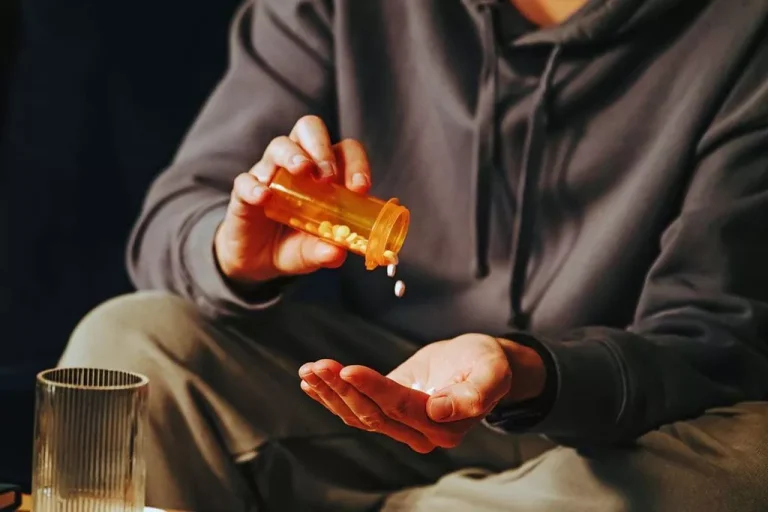It’s essential to acknowledge that reducing or quitting alcohol can significantly improve both physical and mental health, and professional help can offer the necessary guidance and support for this journey. Setting boundaries is a proactive measure that not only helps in managing alcohol consumption but also empowers individuals to lead a more fulfilling and less alcohol-centered life. Communicating these boundaries clearly and consistently to friends, family, and colleagues is important to ensure they are respected and supported. Establishing boundaries with alcohol, especially in a culture that often encourages after-work drinks, is crucial for maintaining a healthy lifestyle and preventing dependence. To set effective alcohol boundaries, it’s essential to understand your motivations for wanting to drink less. This self-awareness can guide you in making decisions that align with your personal and professional goals.
- Research indicates that even moderate drinking can lead to an irregular heartbeat and heightened blood pressure, both of which are risk factors for more severe cardiovascular diseases.
- If consumption stops suddenly, the person may experience withdrawal symptoms.
- You might not recognize how much you drink or how many problems in your life are related to alcohol use.
- A survey conducted on after-work drinks showed that one in five workers who attend happy hours find it beneficial for networking and improving their position in the company, and eight in ten attend to bond with colleagues.
What Really Happens to Your Body When You Drink Hard Liquor Every Night
- Even drinking a little too much (binge drinking) on occasion can set off a chain reaction that affects your well-being.
- According to some research, coffee could alter fat storage and support gut health, both of which may be beneficial for weight management (13).
- “My co-workers would grab six [bottles] and stake out a table and we would all just hunker down and start pounding it,” she says.
Drinking alcohol before working out can reduce a person’s physical performance, abilities, and reactions. It can also make them dehydrated, and more likely to have EAC or develop potentially dangerous heart rhythms. If they have significant quantities of alcohol in their system, their heart may be under extra stress. A person’s body temperature rises as they begin to exercise, and they begin to sweat.
When Alcohol or Drugs Interfere With Your Work
These effects can negatively impact a person’s performance during exercise or competitions. If they are working out after drinking, their low blood sugar levels decrease their performance and increase fatigue. According to the National Institute on Alcohol Abuse and Alcoholism (NIAAA), nearly 9 in 10 adults in the United States have consumed alcoholic drinks during their lifetime. Using hard liquor to relieve stress affects your ability to find healthy ways to manage stress.
Mental Health Disorders: Anxiety, Depression, PTSD, ADHD
Finally, experts from the National Institute on Alcohol Abuse and Alcoholism indicate that women are more susceptible to certain alcohol-related conditions, such as heart disease and brain damage, compared to men. Having a beer or a glass of wine after work can be a relaxing way to unwind, depending on your personal preferences and tolerance for alcohol. Just remember to drink responsibly and in moderation to avoid any negative effects on your health or well-being. If you enjoy both beer and wine, you might alternate between them or choose based on what you’re in the mood for.

But the sooner you enter alcohol treatment, the sooner you can reap the rewards of abstinence. Alcohol misuse can damage the body over time, affecting a host of systems. (Explore the Risks, Dangers, and Effects of Alcohol on the Body for detailed insights.) However, once someone quits drinking, many negative effects can be reversed or minimized. Find up-to-date statistics on lifetime drinking, past-year drinking, past-month drinking, binge drinking, heavy alcohol use, and high-intensity drinking. Physiologically, it’s not helpful to drink after a workout if you’re attempting to achieve fitness gains, especially if you enjoy a post-workout alcoholic beverage regularly.


For example, one study looked at the effect of alcohol consumption on rates of myofibrillar protein synthesis (also called muscle protein synthesis, or MPS) following strenuous exercise. Although there’s a lot of research about the effects of drinking alcohol before exercise, there’s not a ton of research on the effects of drinking alcohol after working out. With that said, drinking a lot of alcohol after working out can be detrimental to your workout recovery, overall health, and potential fitness gains. Each person is unique, which means an individual’s road to recovery is distinctive as well. Additionally, it may take a fair amount of time to experience some of the aforementioned physical and mental benefits of sobriety.
Your Mental Health Suffers
While there aren’t really any benefits to drinking after a workout, if you do have an adult beverage, choose wisely. If drinking hard liquor every night takes you over the recommended limit, you might be seriously damaging your heart. Researchers found that young adults who drank frequently, to include binge drinking, took in a significant amount of extra calories over a one year period — enough calories to equal a possible weight gain of 14 to 32 pounds.
Alcohol has been linked to disruptions in sleep, impairment in judgement and it can negatively affect relationships, according to Harvard T.H. Chan School of Public Health. All of these factors can take a significant cascading toll on your mental health. The recommendation for drinking risks of drinking after work alcohol has long been no more than one drink per day for women and two for men on days you imbibe. Anyone with an alcohol dependency disorder who desires to stop drinking should seek professional medical care or a treatment center specializing in safe alcohol detoxification.






